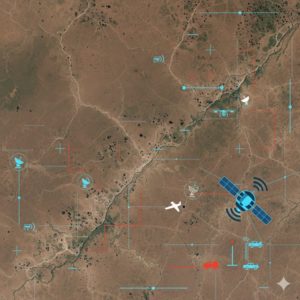Sahel: the quest for military satellite surveillance
 Paul AMARA, Consultant, Center for Strategies for Security in the Sahel and Sahara, Centre4s.org
Paul AMARA, Consultant, Center for Strategies for Security in the Sahel and Sahara, Centre4s.org
Following the disruption of their relations with the French and American militaries, Sahel countries have forged new partnerships to obtain satellite imagery. These tools—precious in the fight against terrorism and trafficking in drugs, weapons, gold, migrants, human beings, cigarettes, and fuel—are proliferating. As early as November 2023, Mali signed a memorandum of understanding with the Russian company Glavkomos, specialized in space activities. This agreement allowed it to improve internet, telecommunications, television, and territorial surveillance coverage. Other countries followed suit, displaying increasingly ambitious space goals. Thus, they are considering launching military observation satellites, either jointly or individually.


 Paul AMARA, Consultant Centre des stratégies pour la sécurité du Sahel Sahara, Centre 4s.org
Paul AMARA, Consultant Centre des stratégies pour la sécurité du Sahel Sahara, Centre 4s.org Paul Amara, Center for Sahel-Saharan Security Strategies, Centre4s.org
Paul Amara, Center for Sahel-Saharan Security Strategies, Centre4s.org Paul Amara, Consultant, Strategy, Security, Sahel Sahara (Centre4s.org)
Paul Amara, Consultant, Strategy, Security, Sahel Sahara (Centre4s.org) Limam Nadawa, Consultant, Sahel Center for Security Strategies Sahara Centre 4s.org
Limam Nadawa, Consultant, Sahel Center for Security Strategies Sahara Centre 4s.org